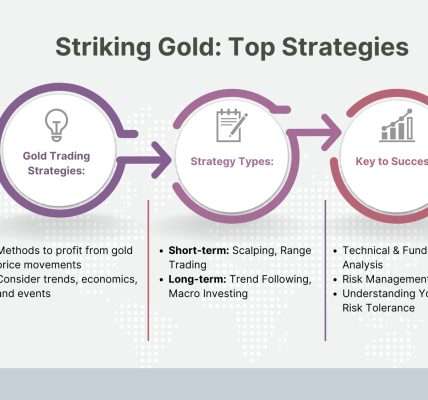Understanding your credit standing is crucial in today’s financial world. It impacts everything from loan approvals to interest rates and even rental applications. Central to this understanding is the credit report, a detailed record of your credit history. Therefore, knowing what a credit report is and how to access it is essential for maintaining financial health and making informed decisions about your future. This article will delve into the specifics of these reports and guide you on where to find yours.
What Exactly is a Credit Report?
A credit report is a comprehensive document that summarizes your credit history. It’s essentially a financial report card, detailing your payment history, outstanding debts, credit accounts, and any public records related to your financial standing. Lenders, landlords, and even potential employers use this report to assess your creditworthiness and ability to manage financial obligations. The information included in a credit report is compiled by credit reporting agencies, also known as credit bureaus.
Key Components of a Credit Report:
- Personal Information: Includes your name, address, Social Security number, and date of birth.
- Credit Accounts: Lists all your open and closed credit accounts, such as credit cards, loans, and mortgages. It shows the type of account, credit limit, account balance, and payment history.
- Public Records: Contains information from public records, such as bankruptcies, tax liens, and judgments.
- Inquiries: Records who has accessed your credit report, including lenders and other businesses.
Why is Accessing Your Credit Report Important?
Regularly checking your credit report is vital for several reasons. Firstly, it allows you to identify any errors or inaccuracies that could be negatively impacting your credit score. Secondly, it helps you monitor your credit activity and detect potential fraud or identity theft. Thirdly, understanding the information contained in your report empowers you to take steps to improve your creditworthiness. Furthermore, access to your report is legally guaranteed.
Where Can You Access Your Credit Report?
You are entitled to a free credit report from each of the three major credit bureaus – Equifax, Experian, and TransUnion – once every 12 months. Here are the most common ways to access them:
- AnnualCreditReport.com: This is the official website authorized by the federal government to provide free credit reports.
- Credit Bureau Websites: You can also request your report directly from Equifax, Experian, and TransUnion.
- Mail: You can download a request form from AnnualCreditReport.com and mail it to the address provided.
Here’s a comparison of the three major credit bureaus:
| Credit Bureau | Website | Contact Information |
|---|---|---|
| Equifax | www.equifax.com | (800) 685-1111 |
| Experian | www.experian.com | (888) 397-3742 |
| TransUnion | www.transunion.com | (800) 916-8800 |
Beyond the Basics: Decoding the Credit Constellation
Think of your credit report not just as a dry ledger, but as a map of your financial universe. Each account, each payment, each inquiry, is a star twinkling in your credit constellation. Learning to read this celestial chart allows you to navigate the cosmos of credit with confidence. But what if there are rogue asteroids threatening to disrupt your financial orbit? What if nebulous inaccuracies cloud your judgment?
Disputing Errors: Polishing Your Credit Constellation
Finding errors on your credit report is like discovering a flaw in a priceless gem. Don’t despair! You have the power to polish it. The Fair Credit Reporting Act (FCRA) grants you the right to dispute inaccurate or incomplete information. This involves contacting the credit bureau and the creditor that reported the information. Prepare a detailed explanation of the error and provide supporting documentation. Think of yourself as a meticulous astronomer, carefully documenting discrepancies and presenting irrefutable evidence.
The credit bureaus are legally obligated to investigate your dispute within 30 days. If they find an error, they must correct it. This can lead to a significant improvement in your credit score, opening doors to better interest rates and financial opportunities. It’s like clearing the atmospheric haze, allowing your credit constellation to shine brighter than ever before. But what if the credit bureaus disagree with your dispute?
The Next Frontier: Building a Stellar Credit Future
Even with a clean credit report, building a truly stellar credit future requires proactive effort. It’s not enough to simply avoid negative marks; you need to actively cultivate positive credit habits. This involves using credit responsibly, paying your bills on time, and keeping your credit utilization low. Think of it as terraforming a new planet – meticulously planning and nurturing its growth.
- Diversify Your Credit Mix: Having a variety of credit accounts, such as credit cards, loans, and mortgages, can demonstrate your ability to manage different types of credit.
- Become an Authorized User: If you have a trusted friend or family member with a good credit history, ask to become an authorized user on their credit card. This can help you build credit without having to apply for your own card.
- Consider a Secured Credit Card: If you have limited or no credit history, a secured credit card can be a great way to start building credit.
The journey to a perfect credit score is not a sprint, but a marathon. It requires patience, discipline, and a willingness to learn. But with the right knowledge and strategies, you can transform your credit from a liability into an asset, unlocking a world of financial possibilities. And remember, even the brightest stars started as dust clouds, slowly gathering momentum and shining brighter with each passing year. So, take control of your financial destiny, chart your course through the credit cosmos, and build a future as brilliant as the stars themselves.

